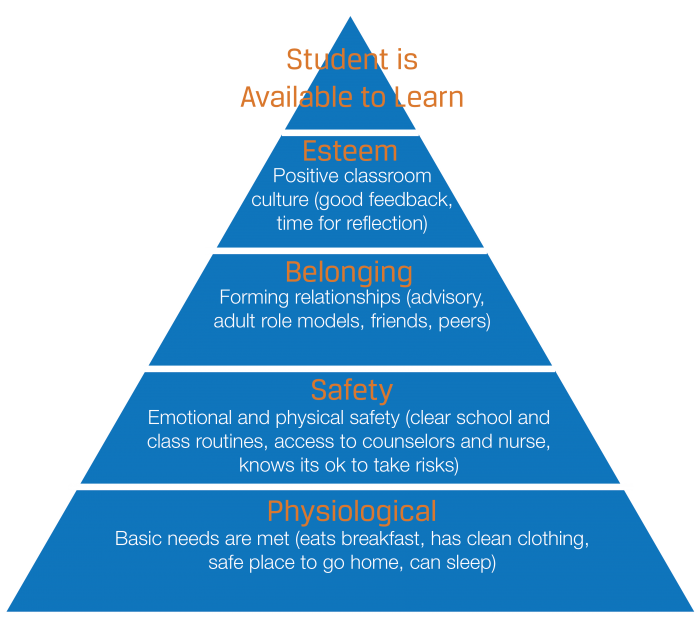3 Things Being a Middle School Teacher Says About You
Are there any Middle School teachers out there? How many of you have purposely chosen to teach Middle School kids? Let’s see…1…2…2.5. OK, got it. At least I can high-5 both of you at the same time.
For most of my teaching career, this is where I hovered. Somewhere between 5th-8th grade. I loved and and hated it. Keep reading to find out why.
Why does this matter?
I have been in a number of different education conference-type situations in my life where, in “getting to know the room,” they ask educators to stand up in order to see what age group each of us teaches. So, for example, “stand up if you are a third grade teacher,” type of thing. Almost every time, when they get to the “stand up if you teach Middle School kids in some way,” a few things happen:
- First, there are far fewer teachers standing for this level
- Second, we all look at each other knowingly and give invisible fist bumps, because we’ve walked through the same fire
- Third, everyone else applauds loudly and says some iteration of, “Oh you guys are heroes…I couldn’t never teach middle school kids.”
It’s sooo predictable. And it’s kind of silly. Here’s why.
Middle school teachers get it better than most
Middle School teachers (the great ones anyway), while they often have to put up with rolling eyes, snarky comments and unchecked body odor (come on people, have the awkward talk… your nose will thank me!), have actually figured out what’s important about this teaching gig, what kids really need to learn and internalize during their time with us: emotional fortitude and validation of humanity.
That’s a mouthful, I know. But hear me out. Kids from 11-14 are in an extremely raw form of themselves. Their brains are growing and developing at a rate only paralleled by the huge growth seen during the toddler years. (Their behavior is also strikingly similar to that of toddlers at times…THIS IS WHY!)
They are literally shedding their “childness” and trying to figure out who they are and how they are going to express that in the world. They are having huge emotions that they aren’t yet equipped to process on their own. That, my friends, is BIG WORK. And whether or not you knew it on your first day, you signed up to be their guide and mentor (and counselor, and organizational guru, and mediator, and sudo parent…you get the idea) on this often very bumpy ride.
YOU ARE A HERO. Go highfive yourself in the mirror. Go, I’ll wait.
Ok. Now that we’ve celebrated, read below to see what teaching middle school kids says about you, and how it makes you pretty much the most awesome.
1. Middle School teachers have an understanding that kids in this stage are still, well, kids…kind of.
Here’s what this means. Your 7th graders are trying hard to fit in and be cool–whatever version of cool is cool at that point in time (did you follow that?). But also, that’s exhausting work, and at the heart of it, they are still young and have a need for silliness.
Most middle school teachers are adept at seeking out the right time to let some silliness happen, and they know the good it will do kids to feel comfortable letting their silly out in a safe place. In fact many teachers have purposely chosen the middle school years so that they HAVE PERMISSION to be silly when it calls for it.
It’s not an easy skill to walk the tightrope of being silly and (somewhat) serious as a teacher. I once worked with an incredibly talented middle school teacher that could tell a (somehow relevant) fart joke and then promptly pull the whole hysterically laughing class back into a discussion about how the fertility of the mesopotamian river valley influenced the development of ancient civilizations, all within a 3-minute time frame. 6 years later, I’m still trying to figure out how he did it.
2. You are clear on the importance of both the “zoomed in” feelings and the “zoomed out” perspective
In my days of teaching middle school students, I had a clear idea of what made me really good at the job. It wasn’t really my knowledge of Young Adult literature, or my instruction on writing 5 paragraph essays. I was good at the human part. In education, often academic skills are put ahead of everything… even when it’s clear that kids need space to process feelings and be walked through how to be a human when it feels difficult.
When middle school kids are upset about things, they need someone to understand them. That’s pretty much it. Much like a toddler needs when they feel big emotions, teens need an adult to sit with them and say, “this is so hard. You are right to feel sad/mad/angry/frustrated. Your friend just _____ (fill in the blank).” Validate. Validate Validate. This is the “Zoom In” part. Whatever happened is their whole world…right now.
And then, after they feel seen and heard and like they are right to have feelings about what’s happening to them, you can gently remind them that also, after a few deep breaths, or in an hour, later at dinner, maybe tomorrow, they will feel differently, better, less tired. They will for sure not feel the way that they do at this moment.
“Zoom out.” Offer perspective. Please understand that I believe this takes a BIG well of patience and emotional fortitude to do all day, everyday. An emotional vault. It’s not for the weak or weary, my friends.
3. If you are lucky and in the right place, you will have a whole cast of similar characters around you… if not, you will struggle.
This one is a little different. As I said before (somewhere anyway), I have worked in many schools. Approximately maybe 2 of them had the type of human beings I needed around me to do my job well every day.
One of them had a great small group of teachers but pretty awful leadership. Leadership that didn’t get the part about humans being our capital, and feelings being a part of their day. To be planned for. It didn’t fit in their crammed excel sheet schedule of a day and was dismissed pretty often. This is a problem.
Being a Middle School teacher can be the best
If you are a middle school teacher who agrees with all of these points…Find Your Place. Or Create it (I tried that, too. It’s hard, but I imagine it would be worth it if you have the time, resources, and grit to make it happen)!!
There are adolescents everywhere that need great teachers that understand them and give them space to understand themselves. This should always be the main goal, in my humble opinion. Because sad, frustrated, invalidated adolescents become adults quickly…and we’ve all seen how that turns out.



